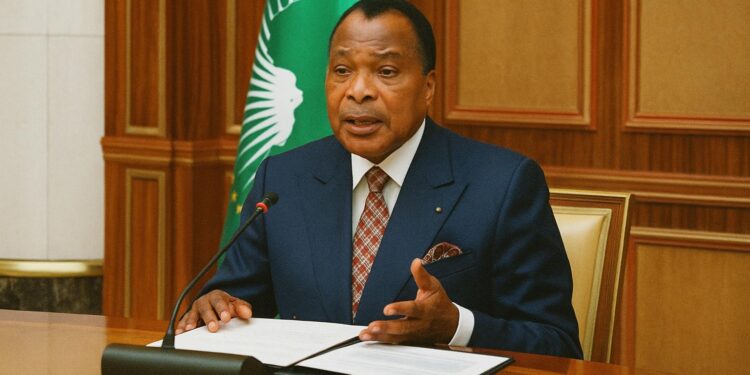Renewed clashes amplify security anxieties in Libya
The late-May firefights between the 44th Infantry Brigade and the Stability Support Apparatus unsettled a capital already fatigued by a decade of intermittent warfare. According to the United Nations Support Mission in Libya (UNSMIL, 2024), the exchange of heavy weapons in the southern precincts of Tripoli displaced several hundred families overnight and fractured a tenuous cease-fire that had endured, with lapses, since October 2020. Diplomats based in Tunis report that insurance premiums for commercial cargo entering Libyan ports spiked within days—an empirical barometer of investor apprehension.
African Union raises the diplomatic temperature
Sensing the risk of a slide toward broader confrontation, the Peace and Security Council of the African Union convened an extraordinary virtual meeting on 24 July under Ugandan chairmanship. President Yoweri Museveni opened the debate by acknowledging that Africa’s own security cannot be decoupled from Libya’s stability, a sentiment echoed later by several Sahelian envoys concerned about arms spill-over. In a measured intervention, AU Commission Chairperson Moussa Faki Mahamat lamented what he termed a ‘regrettable relapse into armed logic’ that jeopardises months of incremental confidence-building (African Union Communiqué, July 2024).
Sassou Nguesso and the high-level committee’s tightrope
Speaking for the AU High-Level Committee on Libya, President Denis Sassou Nguesso of Congo-Brazzaville struck a tone that blended urgency with guarded optimism. He reminded participants that the draft Inter-Libyan Reconciliation Charter—hammered out in Brazzaville, Oyo and Addis-Ababa over eighteen months of quiet shuttle diplomacy—now awaits only the ceremonial signatures of Libya’s principal stakeholders. ‘We owe the Libyan people a horizon of predictability,’ he argued, framing the charter not as a panacea but as an indispensable platform for dialogue.
Diplomatic observers note that Brazzaville’s mediation posture has remained deliberately low-key, eschewing headline diplomacy in favour of sustained back-channel contact with tribal elders, municipal councils and economic technocrats from Misrata to Sebha (Institute for Security Studies, 2024). Such granular outreach, Sassou Nguesso’s advisers contend, inoculates the process against allegations of external diktat—an accusation that historically derailed several UN-facilitated tracks.
The Addis-Ababa charter: a blueprint under stress
Set for formal unveiling in Addis-Ababa later this year, the charter commits signatories to a sequenced agenda: a nationwide cease-fire monitoring mechanism led by joint Libyan units, an asset unfreezing framework supervised by the African Development Bank, and a constitutional referendum within fifteen months. While rival armed coalitions offered preliminary nods in April, the renewed Tripoli skirmishes have stoked doubts over their ability to respect even a phased demobilisation schedule. Still, AU officials insist that the document retains broad elite and grassroots legitimacy—largely because it was drafted in Arabic and Amazigh vernaculars rather than translated from an external blueprint.
International convergence and strategic calculus
Western and Gulf capitals watched the AU session closely for clues about policy recalibration. European Union envoys, mindful of migration corridors across the Central Mediterranean, privately welcomed the Union’s activist stance but cautioned that sanctions compliance must accompany any AU-brokered deal (EEAS briefing, 2024). Russia and Türkiye, both wielding significant influence over Libyan armed formations, issued separate statements endorsing ‘African ownership’, a rhetorical alignment that masks divergent security interests yet signals willingness to coordinate de-confliction arrangements.
For Washington, the prospect of an AU-validated charter dovetails with its own emphasis on burden-sharing. State Department officials underscored that the United States would ‘support logistically and politically’ an African-led monitoring mission, provided that operational clarity and civilian oversight are baked into the mandate (U.S. State Department press briefing, 2024).
Weighing prospects for durable stabilisation
Despite the sombre backdrop, seasoned mediators believe that the latest flare-up could paradoxically accelerate consensus by reminding Libyan factions of the steep cost of military brinkmanship. Mohamed El Menfi, chair of Libya’s Presidential Council, used the AU forum to reiterate his call for ‘unwavering international accompaniment’, coupling gratitude for fourteen years of AU engagement with a plea for intensified security-sector reform assistance.
Ultimately, the AU’s diplomatic calculus rests on sustaining momentum without over-promising. As one senior Congolese envoy put it in a private exchange, ‘Our credibility hinges on shepherding measurable steps, not on theatrical breakthroughs.’ In that sense, Africa’s own diplomatic poise is being tested as sharply as Libya’s capacity for compromise—and the coming months will reveal whether the Addis-Ababa charter can outpace the guns of Tripoli.












































